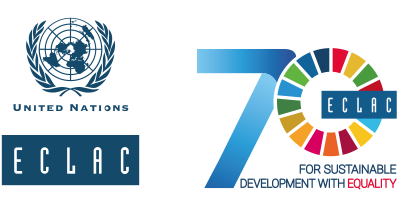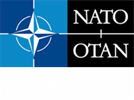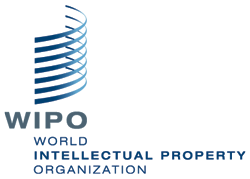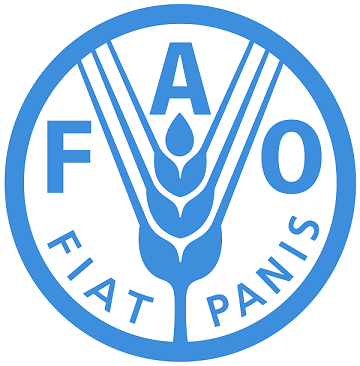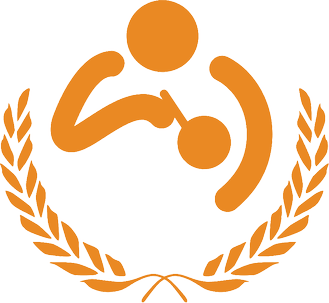Org. Setting and Reporting
This position is located in the Economic Commission for Latin America and the Caribbean (ECLAC) in Santiago de Chile. The Chief of the International Trade and Integration Division reports to the Executive Secretary. The Economic Commission for Latin America and the Caribbean is one of the five regional Commissions of the United Nations. It was founded in 1948 with the purpose of contributing to the region's economic and social development. Its mission includes the design, monitoring and evaluation of public policies and the provision of advisory services, expertise and training to Governments, as well as support for regional and international cooperation and coordination activities. Please visit our website at www.eclac.org for further information.
Responsibilities
Under the overall supervision of the Executive Secretary, the incumbent will formulate and implement the substantive work programme of the Division under his/her supervision. • Oversees the management of activities undertaken by the Division, ensures that programmed activities are carried out in a timely fashion and co-ordinates work in the different areas both within the Division and Department, and with other organizations of the United Nations System, as appropriate. • Leads, supervises and carries out the work programme of the Division under his/her responsibility. Co-ordinates the work carried out by different work units under the Division and by other agencies and bodies of the United Nations system; provides programmatic/substantive reviews of the drafts prepared by others. • Co-ordinates and oversees the preparation of reports for presentation to intergovernmental bodies such as the Committee for Programme Coordination, Economic and Social Council, the General Assembly and other policy-making organs, as appropriate. • Reports to intergovernmental bodies on budget/programme performance or on programmatic/ substantive issues, as appropriate, particularly those presented in biannual and/or annual reports. • Ensures that the outputs produced by the Division under his/her responsibility maintain high-quality standards, and that reports are clear, objective and based on comprehensive data. • Ensures that all outputs produced by the Division under his/her supervision comply with the relevant mandates. • Prepares the work programme of the Division, determining priorities, and allocating resources for the completion of outputs and their timely delivery. • Undertakes or oversees the programmatic/administrative tasks necessary for the functioning of the Division, including preparation of budgets, reporting on budget/programme performance, evaluation of staff performance (e-performance), interviews of candidates for job openings, evaluation of candidates and preparation of inputs for results-based budgeting. • Recruits staff, taking due account of geographical balance. • Manages, guides, develops and trains staff under his/her supervision. • Fosters teamwork and communication among staff in the Division and across organizational boundaries. • Leads and supervises the organization of meetings, seminars, etc. on substantive issues. Manages the substantive preparation and organization of such meetings or seminars. • Participates in international, regional or national meetings and provides programmatic/substantive expertise on an issue, or holds programmatic/substantive and organizational discussions with representatives of other institutions. • Leads team members efforts to collect and analyze data and provides insight to identify trends or patterns for data-driven planning, decision-making, presentation and reporting. Ensures that everyone can discover, access, integrate and share the data they need. • Represents the Division at international, regional or national meetings.
Competencies
• Professionalism: Knowledge of the substantive field of work in general and of specific areas being supervised. Ability to produce reports and papers on technical issues and to review and edit the work of others. Ability to apply UN rules, regulations, policies and guidelines in work situations. The ability to analyze and interpret data in support of decision-making and convey resulting information to management. Shows pride in work and in achievements; demonstrates professional competence and mastery of subject matter; is conscientious and efficient in meeting commitments, observing deadlines and achieving results; is motivated by professional rather than personal concerns; shows persistence when faced with difficult problems or challenges; remains calm in stressful situations. • Planning& Organizing: Develops clear goals that are consistent with agreed strategies; identifies priority activities and assignments; adjusts priorities as required; allocates appropriate amount of time and resources for completing work; foresees risks and allows for contingencies when planning; monitors and adjusts plans and actions as necessary; uses time efficiently. • Accountability: Takes ownership of all responsibilities and honours commitments; delivers outputs for which one has responsibility within prescribed time, cost and quality standards; operates in compliance with organizational regulations and rules; supports subordinates, provides oversight and takes responsibility for delegated assignments; takes personal responsibility for his/her own shortcomings and those of the work unit, where applicable. Managerial Competencies • Leadership: Serves as a role model that other people want to follow: empowers others to translate vision into results; is proactive in developing strategies to accomplish objectives; establishes and maintains relationships with a broad range of people to understand needs and gain support; anticipates and resolves conflicts by pursuing mutually agreeable solutions; drives for change and improvements. Provides leadership and takes responsibility for incorporating gender perspectives and ensuring the equal participation of women and men in all areas of work; demonstrates knowledge of strategies and commitment to the goal of gender balance in staffing. • Vision: Identifies strategic issues, opportunities and risks; clearly communicates links between the Organization’s strategy and the Division’s goals; generates and communicates broad and compelling organizational direction, inspiring others to pursue that same direction; conveys enthusiasm about future possibilities.
Education
Advanced university degree (Master’s degree or equivalent) in economics, international trade, development economics, business, public policy or public administration or related area is required. A first-level university degree in combination with qualifying experience may be accepted in lieu of the advanced university degree.
Job - Specific Qualification
A doctoral degree in economics, international trade, international development, public policy, business or other relevant fields is desirable. Successful completion of both degree and non-degree programs in data analytics, business analytics or data science programs is desirable.
Work Experience
A minimum of fifteen years of progressively responsible experience in human resources management, administration, logistics, financial management, budget or related field is required. A minimum of fifteen years of progressively responsible experience in managing teams and administering projects is required. A minimum of five years of experience dealing with economics, international trade and integration is required. Experience in economics, or international trade and integration in Latin America and the Caribbean is required. Extensive experience in institutional relationship with national governments, NGOs and international organizations and bodies is desirable. Experience in data analytics or related area is desirable
Languages
English and French are the working languages of the United Nations Secretariat. For this job opening, English
and Spanish are required. The table below shows the minimum required level for each skill in these languages, according to the UN Language Framework (please consult
https://languages.un.org for details).
Required Languages
| Language | Reading | Writing | Listening | Speaking |
|---|
| English | UN Level III | UN Level III | UN Level III | UN Level III |
| Spanish | UN Level III | UN Level III | UN Level III | UN Level III |
Assessment
Evaluation of qualified candidates may include an assessment exercise which may be followed by competency-based interview.
Special Notice
- At the United Nations, the paramount consideration in the recruitment and employment of staff is the necessity of securing the highest standards of efficiency, competence and integrity, with due regard to geographic diversity. All employment decisions are made on the basis of qualifications and organizational needs. The United Nations is committed to creating a diverse and inclusive environment of mutual respect. The United Nations recruits and employs staff regardless of gender identity, sexual orientation, race, religious, cultural and ethnic backgrounds or disabilities. Reasonable accommodations for staff with disabilities may be provided to support participation in the recruitment process when requested and indicated in the application. - Staff members are subject to the authority of the Secretary-General and to assignment by him or her. In this context, all staff are expected to move periodically to new functions in their careers in accordance with established rules and procedures. -The United Nations Secretariat is committed to achieving 50/50 gender balance and geographical diversity in its staff. Female candidates are strongly encouraged to apply for this position. - Staff members of the United Nations Secretariat must fulfil the lateral move requirements to be eligible to apply for this vacancy. Staff members are requested to indicate all qualifying lateral moves in their Administrative Profile (AP) and cover letter. - Staff members appointed to the current position are required to submit a financial disclosure statement upon assignment or appointment and annually thereafter. - A staff member holding a temporary appointment who is recruited in the Professional and above categories, on a temporary appointment, and placed on a position authorized for one year or longer may not apply for or be reappointed to his/her current position within six months of the end of his/her current service. For full information on eligibility requirements, please refer to section 5 of ST/AI/2010/4Rev.1 on Temporary Appointments. - For this position, applicants from the following Member States, which are unrepresented or underrepresented in the UN Secretariat as of 31 August 2025, are strongly encouraged to apply: Unrepresented: Andorra, Angola, Belize, Brunei, China, Cuba, Darussalam, Democratic People's Republic of Korea, Dominica, Equatorial Guinea, Germany, Grenada, Guinea-Bissau, Indonesia, Israel, Japan, Kiribati, Kuwait, Libya, Lao People's Democratic Republic, Liechtenstein, Malta, Marshall Islands, Micronesia (Federated States of), Monaco, Nauru, Oman, Palau, Papua New Guinea, Panama, Paraguay, Qatar, Saint Vincent and the Grenadines, San Marino, Sao Tome and Principe, Saudi Arabia, Singapore, Solomon Islands, Timor-Leste, Tuvalu, Turkmenistan, United Arab Emirates, United States of America, Vanuatu.
United Nations Considerations
According to article 101, paragraph 3, of the Charter of the United Nations, the paramount consideration in the employment of the staff is the necessity of securing the highest standards of efficiency, competence, and integrity. Candidates will not be considered for employment with the United Nations if they have committed violations of international human rights law, violations of international humanitarian law, sexual exploitation, sexual abuse, or sexual harassment, or if there are reasonable grounds to believe that they have been involved in the commission of any of these acts. The term “sexual exploitation” means any actual or attempted abuse of a position of vulnerability, differential power, or trust, for sexual purposes, including, but not limited to, profiting monetarily, socially or politically from the sexual exploitation of another. The term “sexual abuse” means the actual or threatened physical intrusion of a sexual nature, whether by force or under unequal or coercive conditions. The term “sexual harassment” means any unwelcome conduct of a sexual nature that might reasonably be expected or be perceived to cause offence or humiliation, when such conduct interferes with work, is made a condition of employment or creates an intimidating, hostile or offensive work environment, and when the gravity of the conduct warrants the termination of the perpetrator’s working relationship. Candidates who have committed crimes other than minor traffic offences may not be considered for employment. Due regard will be paid to the importance of recruiting the staff on as wide a geographical basis as possible. The United Nations places no restrictions on the eligibility of men and women to participate in any capacity and under conditions of equality in its principal and subsidiary organs. The United Nations Secretariat is a non-smoking environment. Reasonable accommodation may be provided to applicants with disabilities upon request, to support their participation in the recruitment process. By accepting a letter of appointment, staff members are subject to the authority of the Secretary-General, who may assign them to any of the activities or offices of the United Nations in accordance with staff regulation 1.2 (c). Further, staff members in the Professional and higher category up to and including the D-2 level and the Field Service category are normally required to move periodically to discharge functions in different duty stations under conditions established in ST/AI/2023/3 on Mobility, as may be amended or revised. This condition of service applies to all position specific job openings and does not apply to temporary positions. Applicants are urged to carefully follow all instructions available in the online recruitment platform, inspira, and to refer to the Applicant Guide by clicking on “Manuals” in the “Help” tile of the inspira account-holder homepage. The evaluation of applicants will be conducted on the basis of the information submitted in the application according to the evaluation criteria of the job opening and the applicable internal legislations of the United Nations including the Charter of the United Nations, resolutions of the General Assembly, the Staff Regulations and Rules, administrative issuances and guidelines. Applicants must provide complete and accurate information pertaining to their personal profile and qualifications according to the instructions provided in inspira to be considered for the current job opening. No amendment, addition, deletion, revision or modification shall be made to applications that have been submitted. Candidates under serious consideration for selection will be subject to reference checks to verify the information provided in the application. All external candidates recruited in accordance with section 2.2 (a) of ST/AI/2025/3 for a fixed term appointment without limitation and all external candidates recruited in accordance with section 2.2. (c) of ST/AI/2025/3 for a fixed term appointment limited to the entity are subject to an initial probationary period of one year under a fixed-term appointment. Job openings advertised on the Careers Portal will be removed at 11:59 p.m. (New York time) on the deadline date.
No Fee
THE UNITED NATIONS DOES NOT CHARGE A FEE AT ANY STAGE OF THE RECRUITMENT PROCESS (APPLICATION, INTERVIEW MEETING, PROCESSING, OR TRAINING). THE UNITED NATIONS DOES NOT CONCERN ITSELF WITH INFORMATION ON APPLICANTS’ BANK ACCOUNTS.
